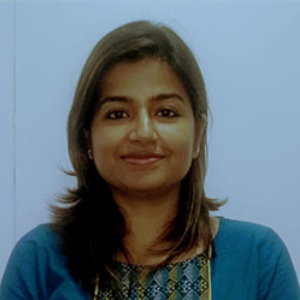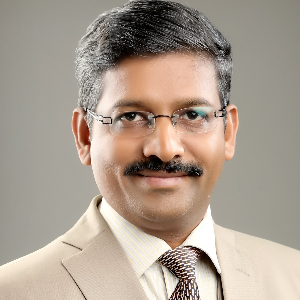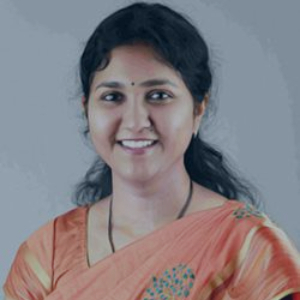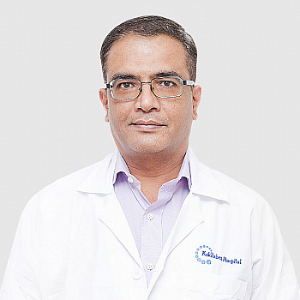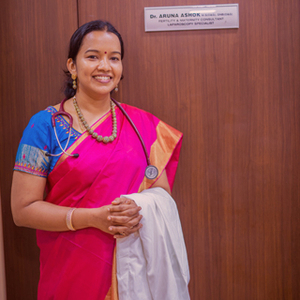Best Doctors in India for Polypectomy
- IVF Specialist & Gynaecologist, Kolkata, India
- Over 10 years’ experience
Profile Highlights:
- Dr. Moumita Naha is a consultant Gynecologist and Obstetrician in Kolkata.
- Dr. Naha is one of the best infertility experts in Kolkata and has assisted in achieving several successful pregnancies in women with various fertility issues.
- She is an expert in IVF, IUI, ICSI, management of infertile couples, recurrent IVF failure, recurrent miscarriage, endometriosis, reproductive endocrinology, sexual medicine, and Andrology.
- IVF Specialist & Gynaecologist, Bengaluru, India
- Over 20 years’ experience
Profile Highlights:
- Dr. Mahesh Koregol is a well-known gynecologist and obstetrician in Bengaluru with extensive knowledge and expertise in infertility treatment and Reproductive medicine.
- He provides infertility treatment for both male and female patients that includes IVF, IUI, ICSI, TESA, PESA, sperm analysis, etc.
- IVF Specialist & Gynaecologist, Kolkata, India
- Over 10 years’ experience
Profile Highlights:
- Dr. Akanksha Jangid is a Consultant of Gynecology and Obstetrics in Kolkata currently associated with Indira IVF. The center is a highly specialized unit equipped with the latest technology in Assisted reproductive technology together with state-of-the-art infrastructure and laboratories.
- She is trained in infertility treatment and provides services for IVF, IUI, ICSI, and fertility tests.
- IVF Specialist & Gynaecologist, New Delhi, India
- Over 15 years’ experience
Profile Highlights:
- Dr. Arvind Vaid is a well-known Gynecologist and Obstetrician in Delhi specializing in IVF and infertility treatment.
- He has over a decade of experience in the treatment of infertility and has helped a number of patients in having a child through ART (Assisted Reproductive Technology).
- Dr. Arvind Vaid is trained in various infertility procedures including IVF, ICSI, IUI, and assisted laser hatching.
- IVF Specialist & Gynaecologist, Hyderabad, India
- Over 15 years’ experience
Profile Highlights:
- Dr. Chandana Lakkireddi is renowned infertility and IVF specialist in Hyderabad with expertise in all kinds of assisted reproductive techniques and the management of infertility issues in both males and females.
- She has an extensive experience of 15+ years and finds interest in reproductive endocrinology, management of PCOS, implantation failure, recurrent failed cycles of IVF, miscarriage, endometriosis, and adenomyosis.
- IVF Specialist & Gynaecologist, Chennai, India
- Over 10 years’ experience
Profile Highlights:
- Dr. Erika Patel is a Consultant of Gynecology & Obstetrics in Chennai with experience in infertility treatment and ART.
- With several years of experience in the management of infertility and training in IVF, Dr. Patel works with the goal of making IVF and assisted reproduction highly successful in India.
- She has helped several couples in conceiving a baby without compromising on the quality and by following strict ethical conduct while maintaining complete transparency during the entire process.
- Surgical Oncology, Mumbai, India
- Over 22 years’ experience
Profile Highlights:
- Dr. Yogesh Kulkarni is a well-known name in the field of Gynae Onco surgery.
- He holds an experience of more than 22 years and has performed more than 2000 gyne oncological surgeries.
- Dr. Yogesh Kulkarni has performed over 1000 gyne cancer surgeries in the hospital. He also holds the credit for 500 ovarian, 250 endometrial, 214 cervical cancer surgeries, and 144 robotic cancer surgeries at KDAH alone.
- He gained popularity when he performed the first Reported Fertility Sparing Surgery for Cervical Carcinoma on a 4-year-old for clear cell cervical carcinoma
- IVF Specialist & Gynaecologist, Chennai, India
- Over 15 years’ experience
Profile Highlights:
- Dr. Aruna Ashok is a well-known gynecologist and obstetrician with experience in the treatment and management of all types of gynecological issues and disorders.
- Along with that, she is an experienced and skilled infertility specialist with training in various types of assisted reproductive techniques including IVF, IUI, ICI, and IMSI. She performs infertility surgeries and donor insemination surrogacy among other several procedures.
- She has delivered talks and presented papers at national levels on infertility, IVF, and the advancements being made in ART.
- Obstetrician & Gynecologist; Gurugram, India
- Over 20 years’ experience
Profile Highlights:
- Deepa Maheshwari is a Gold medalist gynecologist and obstetrician in Delhi NCR, having more than two decades of experience in assisting Gynae patients.
- The doctor specializes in infertility estimation and management, Antenatal Care, High-Risk Pregnancy, PCOD/PCOS Treatment, Maternal Care, and Prenatal checkup.
- Obstetrician & Gynaecologist, Gurugram, India
- Over 12 years’ experience
Profile Highlights:
- Dr. Neha Gupta is one of the best Gynecologists and infertility specialists in Delhi NCR, having more than a decade’s experience.
- In her 12 years of experience, she gained expertise in Hysteroscopic and Laparoscopic procedures.
- Urinary incontinence, ectopic pregnancy, Pelvic floor repair surgeries, uterine prolapse, uterine polyps, surgeries for fibroids, etc. are her core specialties.
Best Hospitals in India for Polypectomy
Polypectomy
Polypectomy is a procedure which is for removing polyps from the inside of your colon, i.e. large intestine. An abnormal collection of tissue is termed as a polyp. The polyps which are removed might be causing symptoms or may even be cancerous. Most polyps are however non-cancerous.
This procedure is noninvasive and is generally carried out at the same time as a colonoscopy.
Purpose
Tumors of the colon generally begin as a benign growth before they become cancerous.
First, a colonoscopy is performed to detect the presence of any polyps. If your doctor detects them, he/she will choose to perform a polypectomy. Then the tissue is examined to determine if the growths are benign, precancerous or cancerous. Thus, this procedure can help you in preventing colon cancer.
Generally, polyps are not associated with any symptoms at all. But larger polyps may lead to problems such as rectal bleeding, bowel irregularities and abdominal pain.
A polypectomy can help you to relieve these symptoms.
Preparation
Depending on the surgical technique and the location of the polyps, preparation for a polypectomy can vary.
Before the colonoscopy is performed prior to the polypectomy, your doctor will need your large intestine to be clear, so that there won’t be any kind of visual obstruction. Due to this reason, you will be asked to thoroughly empty your bowels for a day or two before your procedure. You might receive laxatives and need to have a clear food diet.
Procedure
First, you will need to change into your hospital gown, after which you will receive an anesthetic for the procedure so that you will not feel any pain. You might be asked if you have had any kind of negative reaction to anesthetic before.
The procedure should be relatively quick. It can take between 20 minutes to an hour.
A polypectomy can be performed in several ways. The way your doctor chooses will depend on what kind of polyps are in your colon.
Snare polypectomy
In snare polypectomy, the doctor will loop a thin wire around the bottom of your polyp. Then he/she will use heat for cutting off the growth. If any tissue or stalk is remaining, it is cauterized.
Due to the large size large or configuration of some polyps, it might be technically more challenging to remove them. In such cases, your doctor might choose endoscopic mucosal resection (EMR) or another technique termed as endoscopic submucosal dissection (ESD).
Endoscopic mucosal resection (EMR)
In EMR, your doctor lifts the polyp from the underlying tissue using a fluid injection before he/she performs the resection. The injection is generally made of saline. The doctor removes the polyp one piece at a time. This is called a piecemeal resection.
Endoscopic submucosal dissection (ESD)
In ESD, your doctor injects the fluid deep in the lesion, after which the polyp is removed in one piece.
Bowel surgery might sometimes be required for some larger polyps which can’t be removed endoscopically.
After the polyp is removed, it is sent to a pathology laboratory to see if it is cancerous. The results can take over a week to come back, though in some cases, it might take longer.
Aftercare & recovery
If your polyps are not cancerous, you won’t need to undergo any further treatment.
Generally, recovery from a polypectomy takes around 2 weeks. Patients might feel some pain immediately after the procedure. Some level of bleeding is normal, though you should call the doctor if you experience heavy bleeding.
You should receive instructions from your doctor about caring for yourself. He/she might ask you to avoid a few kinds of foods and drinks which might cause irritation in your digestive system. These can include coffee, tea, soda, alcohol and any kind of spicy food.
You might also be scheduled for a follow-up colonoscopy. It is also quite important to check if the polypectomy was a success and that no other polyps have developed any further.
Risks
Like all procedures, polypectomy carries some risks. Those include-
- Organ perforation: This can occur if the organ operated on, gets punctured. This can be fatal, although it is rare.
- Infection: Polypectomy creates a wound, which in some cases, might get infected. Infection is more likely when patients ignore doctor advice or are in poor health already.
- Excessive bleeding: Sometimes the wound fails to heal properly, thus causing excessive bleeding.
- Incomplete removal: If some tissue is left behind, a second polypectomy might be required.

